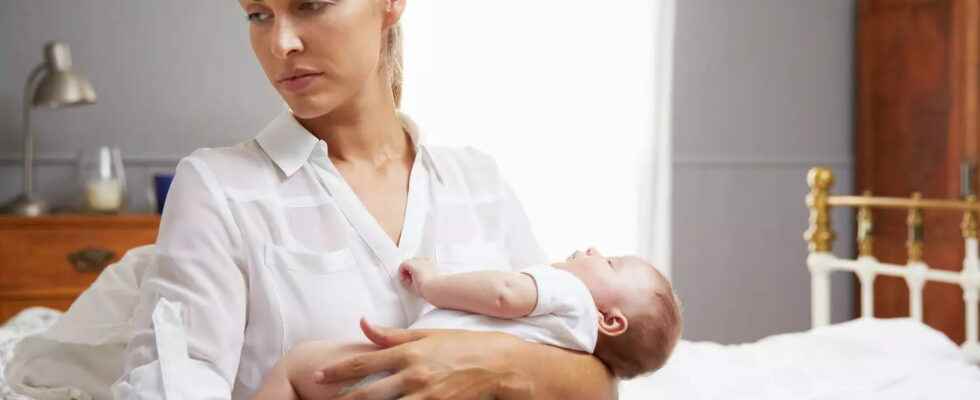To quickly detect the first signs of postpartum depression, an early postnatal interview is mandatory for women who have just given birth. What does it consist on ? When to pass it? Answers.
postpartum depression affect at least 15% of young mothers. In order to prevent, or quickly detect the signs of postpartum depression, an early postnatal interview, i.e. in the weeks following childbirth, is now compulsory for young mothers. “The purpose of this interview, in a global approach to postpartum prevention, is to identify the first signs of depression postpartum or the risk factors that expose it and to assess the possible needs of the woman or spouse in terms of support”specifies the text of amendment to the social security financing bill, adopted in October 2021. This measure comes several years after its suggestion, when the HAS published in 2014 a series of recommendations on the organization of the return to work. homes of mothers and their newborns. If it is mandatory, note that this early postnatal interview will be fully covered by health insurance.
Will early postnatal maintenance be compulsory?
Yes, this early postnatal interview becomes mandatory from July 1, 2022. Like the quarterly pregnancy visits, it is part of the follow-up and is therefore fully covered by health insurance.
When to do the postnatal visit?
The early postnatal interview should be carried out between the 4th and 8th week after delivery by a doctor, a midwife or even a childcare nurse. For women who show signs of postpartum depression, or who simply express the need for it, a second interview may be carried out. between the 10th and 14th week after the baby is born. “Both the first and the second interview should make it possible to direct them, if necessary, to the competent professional. They are therefore intended to fulfill an essential role in supporting young mothers and parents. specify the text.
As Adrien Taquet said, this interview will be carried out by a attending physician or midwife having previously been made aware of the identification of postpartum depression. In the event that signs of depression are detected, the mother (or the father, although this will still be rarer) will be referred to a psychiatrist or psychologist. The Secretary of State for Children also specified that a call for projects had been launched with 10 million euros for “consolidating the offer in perinatal psychiatry” in “opening 5 to 10 new joint parent-baby care units and creating 15 to 20 new mobile teams”.
What is postpartum depression?
More serious and later than the baby blues, postpartum depression usually occurs in 2 to 8 weeks after delivery. It is manifested by typical symptoms such as a feeling of discouragement, sleep disturbances, difficulty concentrating, fatigue, crying, memory lapses, a feeling of isolation, anxiety or even mood swings. ‘mood. In total, this represents 15 to 30% of young mothers. However, only 5% of them say they have been diagnosed and 78% of parents admit not having never heard of postpartum depression during medical appointments.
